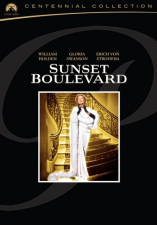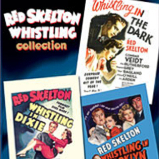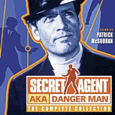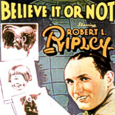Paramount (1950 / 2008), 2 discs, 110 mins plus supplements, Not Rated, $25
The Movie:
 An acerbic, biting satire of Hollywood and, most notably, the fading glamor of celebrity, legendary director Billy Wilder’s Sunset Boulevard is one of the essential cinema greats. Famously opening with the dead body of its leading man in a private pool, Sunset defies all filmmaking conventions by having the dead guy narrating the picture, told in flashback, the sad, sorry slide into obscurity by one-time hot property Norma Desmond, a siren of the silent screen now an ageing has-been desperate for comeback glory.
An acerbic, biting satire of Hollywood and, most notably, the fading glamor of celebrity, legendary director Billy Wilder’s Sunset Boulevard is one of the essential cinema greats. Famously opening with the dead body of its leading man in a private pool, Sunset defies all filmmaking conventions by having the dead guy narrating the picture, told in flashback, the sad, sorry slide into obscurity by one-time hot property Norma Desmond, a siren of the silent screen now an ageing has-been desperate for comeback glory.
Sensing an easy ticket, William Holden is the impoverished writer who, at first, latches on to her, hoping that their teaming could lead to bigger things, but slowly coming to the conclusion that she is perhaps more desperate than even he is, before he realises that they have become hopelessly embroiled in a relationship that neither of them wants but which neither is willing to step away from.
A true classic, shot in the noir black and white that would also tinge Robert Aldrich’s similar look at stardom’s light being shone elsewhere, Whatever Happened To Baby Jane?, Wilder’s film is richly black, a dark exploration into the underside of Tinsel Town that shows all that glitters isn’t gold. As Desmond, Gloria Swanson isn’t just play acting…this was a late career entry for her and she’s able to capture the desperation of wanting to be a star again that Desmond so craves. Holden matches her, playing his B-Picture hero straight early on but adding layers and nuances as the relationship between the two slowly switches dynamics. A great touch is the famed silent director Erich Von Stroheim as Desmond’s one time manager, now reduced to ex-husband and butler status, again demonstrating that although she has little need for him, Desmond is unable to let go of her past.
Sunset Boulevard is also a filmmaker’s film…it crackles with barbed dialogue aimed at the Hollywood Studios, and is even set on the Paramount backlot, where we find none other than Cecil B. DeMille at work on a movie. DeMille, of course, was the celebrated auteur who did manage to swap the silents for sound films and went on to make some of the biggest spectacles in Paramount’s history. There’s even room for the likes of Buster Keaton, as one of Norma’s dinner guests in a scene that plays like death warmed up. “It’s the pictures that got small” Desmond says triumphantly – a dig toward television – and at the film’s end she still hasn’t worked out that Hollywood has moved on: completely crazed, she advises Von Stroheim that she’s “Ready for my close up”. It’s a chilling end to an oh-so true story of jealously and betrayal.
The Disc:
Previously released as a Special Collector’s Edition during Paramount’s 90th Anniversary celebrations in 2002, Sunset Boulevard is released here in a “Centennial Collection”, the thick #1 on the spine marking this out in the first of a propose ongoing collection, finally suggesting that Paramount is starting to take its catalog of great films seriously. A Blu-ray Disc is on the cards, but it’s more than just for the stellar transfer that folks may want to upgrade for: a two-disc set, we’re treated to some wonderful new supplements. Carried over from before is a full length Audio Commentary by Ed Sikov, author of a definitive book on Wilder, and it’s a predictably scholarly track, though actually very fun and informative, revealing many facts about the production, alternate scenes and the character’s relationships. More, perhaps, of an audio essay, but never drawn out or obvious.
The menus for this two-disc affair differ from the private screening room approach from before, a minimal gold and black presentation that sets up the Centennial brand for future titles. Nicely, the disc doesn’t bombard one with previews – one, for It’s A Wonderful Life, is saved for its own optional section. The second disc holds the rest of the bonus material, a mix of content from the 2002 disc (a 25 minute Making Of Sunset Boulevard retrospective, the film’s Theatrical Trailer, a Hollywood Location Map, the Morgue Prologue script pages, Photo Galleries, Edith Head: The Paramount Years featurette looking at the legendary costumer, and The Music Of Sunset Boulevard featurette) and new extras. Best of the new supplements is Sunset Boulevard: The Beginning, the first of many generously timed featurettes that speak to as many people connected to the production as possible, including Swanson herself via archive interviews.
The Noir Side Of Sunset Boulevard and Sunset Boulevard Becomes A Classic are both featurettes that look at the personal and public reaction to the film, and among the talking heads is Glenn Close, who would become intimately associated with Norma Desmond when she took on the character for Andrew Lloyd Webber’s musical stage version of the role. The Two Sides Of Gloria Swanson looks at the original Norma’s career, and Mad About The Boy: A Portrait Of William Holden does the same for the leading man, while Stories Of Sunset Boulevard overlaps a little content from the commentary but makes much use of many terrific stills to illustrate its points. Recording Sunset Boulevard focuses on the film’s gritty score and its later re-recording by Joel McNeely as a soundtrack album (a recommended CD in itself), and The City Of Sunset Boulevard not only profiles the locations used in the film but reveals the man behind these exemplary supplements is Laurent Bouzereau, the well-regarded documentary filmmaker.
From the last edition, Franz Waxman And The Music Of Sunset Boulevard naturally profiles the composer, and the same Hollywood Location Map again highlights several locations by way of selectable video clips. New to Sunset Boulevard is the Paramount In The 50s featurette, which I believe has shown up on previous special editions for other titles but was not included in the 2002 disc. Also new, and recently produced, is a great potted history of the beginnings of the Paramount Studio: titled Behind The Gates: The Lot, this looks to be the first of series that will probably build as the Centennial Collection adds more titles to its line up. This first edition follows the famous Studio from its founding by Adolph Zukor and through its early years, speaking primarily to producer A.C. Lyles; though it has little to do with the film other than a Sunset Boulevard clip’s reference to Paramount’s gates, this is a totally appropriate addition, and representative of the top of the line values in the good two or three hours worth of supplements presented here.
The correctly framed 1.33:1 image transfer is stunning…but then it also was on the 2002 disc. Gone is the slightly too clinical video look from then, however, though it’s a close call between the two: I’d say it’s even the same element just given another pass, but it’s certainly impressive and, given more room with the extras on the second disc, cleaner to boot, if that’s possible. Likewise the sound, presented in original and appropriate mono, is crystal clear, allowing Franz Waxman’s evocative scoring to push through as it should in the right moments. Losing the chapter index from the previous release, the Centennial Sunset Boulevard set makes its mark in a deluxe slipcover that adds to the importance of the film as opposed to simply replicating the sleeve art, as well as an eight page booklet featuring background information and stills.
Cinematic Classic or Faded Print?
A terrific salute to one of the all-time great films, and one that should be on the shelves of any serious movie buff, Paramount’s Sunset Boulevard: Centennial Collection is a classy edition of a must-have movie experience. Very highly recommended.





